Hubble Telescope: Viewing the Final Frontier
A Dream in the Making
Before the Hubble Telescope, the world observed and understood space with ground telescopes available. The understanding of our galaxy and universe was previously by distance, weather condition, and light pollution. The launch of the Hubble Telescope, named after Edwin Hubble, the astronomer who discovered the expansion of the universe, shattered limitations enabling amazing discoveries in the vast frontier of space.
Timeline
In the 1600s, Galileo pioneered astronomy using simple telescopes. Revolutionizing what was known about the cosmos, his observation sketches spread through early scientific publications such as Starry Messenger.
"It is therefore decidedly a great feat to add to their number, and to set distinctively before the eyes other stars in myriads, which have never been seen before, and which surpass the old previously known stars in number more than ten times."
-Galileo, "The Sidereal Messenger"
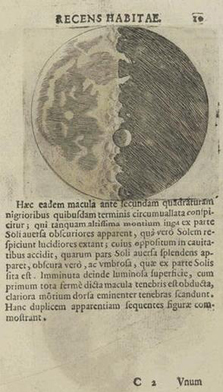
Galileo's Moon Discoveries,1610, Starry Messenger, Library of Congress.
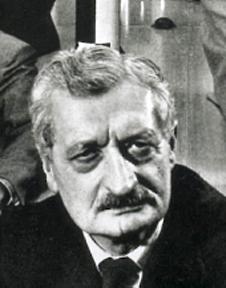
Hermann Oberth, ca. 1930, Library of Congress.
In 1923, Hermann Oberth published "The Rocket into Interplanetary Space." He proposed a telescope in space that would avoid cloudy nights and the light of stars. However, further development in rocketry was needed to make this dream possible. Oberth understood data collected by this telescope would challenge everything previously known.
"The rockets...can be built so powerfully that they could be capable of carrying a man aloft.."
-Hermann Oberth
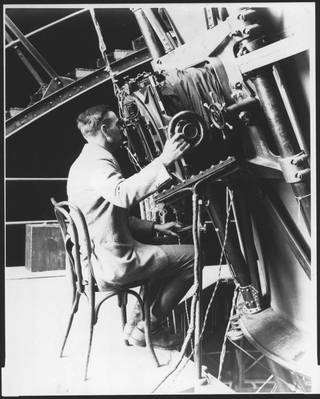
Edwin Hubble, ca. 1929, Huntington Library.
In 1935, Edwin Hubble shifted perspectives using ground telescopes limited by distance and weather to prove the existence of other galaxies. His spirit of exploration inspired astronomers to cross the celestial frontier.
"Eventually, we reach the utmost limits of our telescopes. There, we measure shadows and search among ghostly errors of measurement for landmarks that are scarcely more substantial."
-Edwin Powell Hubble, "The Realm of the Nebulae"
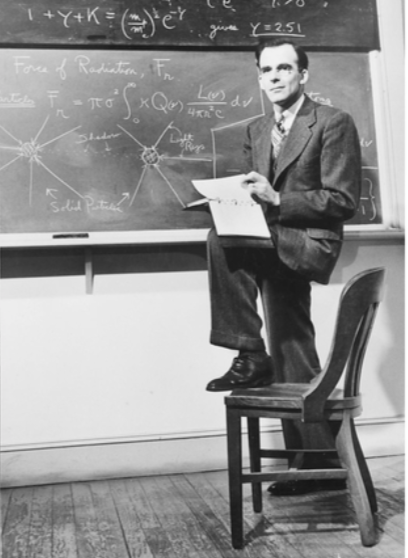
Lyman Spitzer, 1948, Doreen Spitzer.
"Certainly the ideas I had were not new. Hermann Oberth in his book, many, many years ago, discussed the possibilities of a big telescope in orbit. But I became interested in this program partly through astronomical friends who were sending up equiptment in V2 rockets that were captured and brought to this country and used for scientific payloads."
Lyman Spitzer, "Father of the Space Telescope," Princeton University Oral History Interview
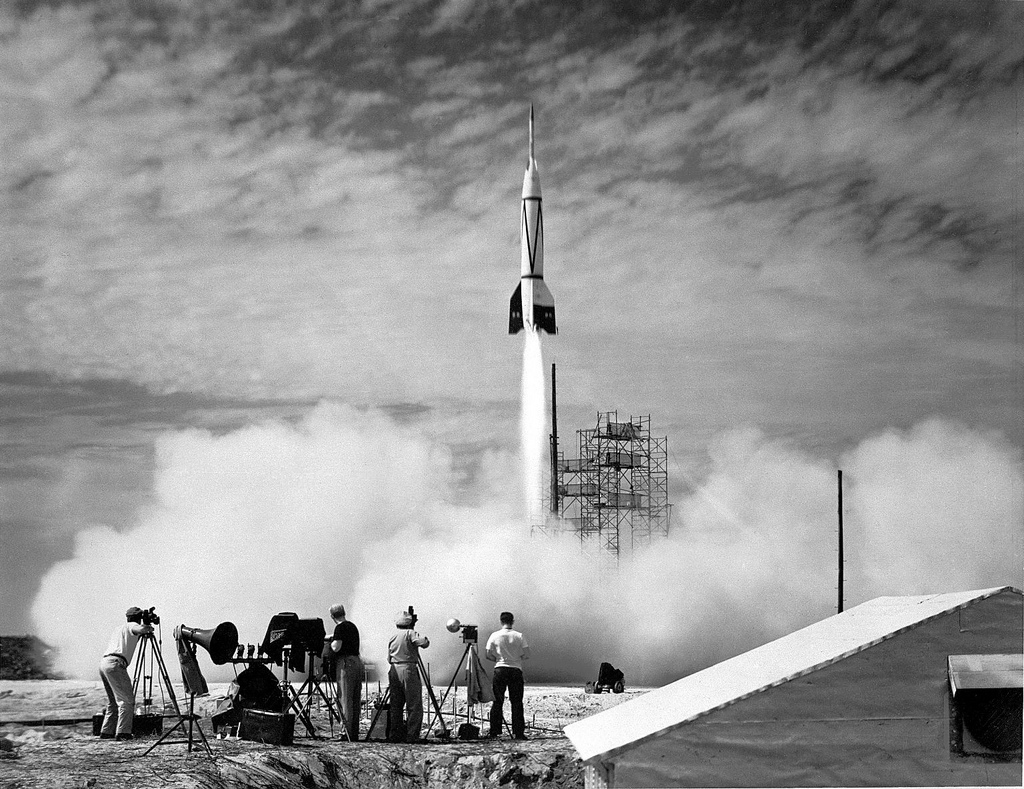
V2, 1950, NASA.
In 1946, American astronomer Lyman Spitzer developed a groundbreaking plan for a space telescope in his paper, "Astronomical Advantages of an Extra-Terrestrial Observatory." Spitzer proposed using rocket technology developed for the V2 rocket during World War II to launch a telescope into space as Oberth once dreamed. However, a leery government space agency was apprehensive about following his revolutionary idea.
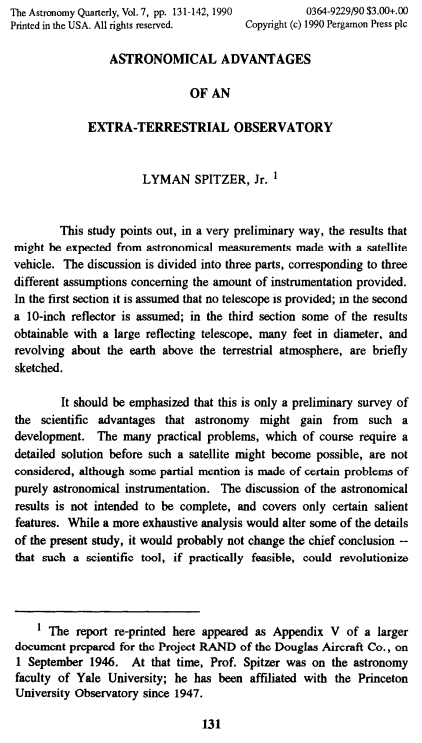
"Astronomical Advantages of an Extra-Terrestrial Observatory," 1946, Astronomy Quarterly.
"For decades, astronomers had longed for a large space telescope. In 1946, Lyman Spitzer wrote a short paper for the RAND Corporation describing the science that could be learned with a 4-m telescope in space. This article is generally considered the impetus for such a telescope in the United States."
-Nancy Grace Roman
In 1959, Hubble origins began when Nancy Grace Roman visited Lyman Spitzer at Princeton University, observing his early experiments in launching telescopes. Her hope...to promote NASA's interest in Hubble.
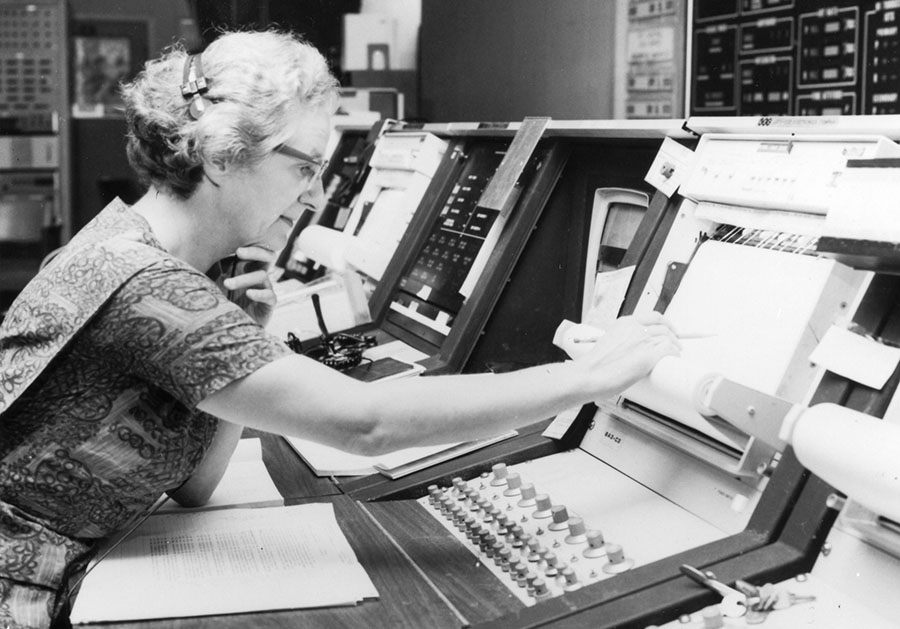
Nancy Grace Roman, 1972, NASA.
By the 1970s, Nancy Grace Roman, “Mother of Hubble," gained NASA support for the telescope. She advocated for Hubble, using the same grit she developed to become first Chief of Astronomy in the Office of Space Science at NASA Headquarters. Her tenacious spirit was essential in overcoming obstacles.
"I wondered had I really oversold the Hubble. I have to admit that, since, I have been convinced that I didn't."
-Nancy Grace Roman
Overcoming AdversityThesis